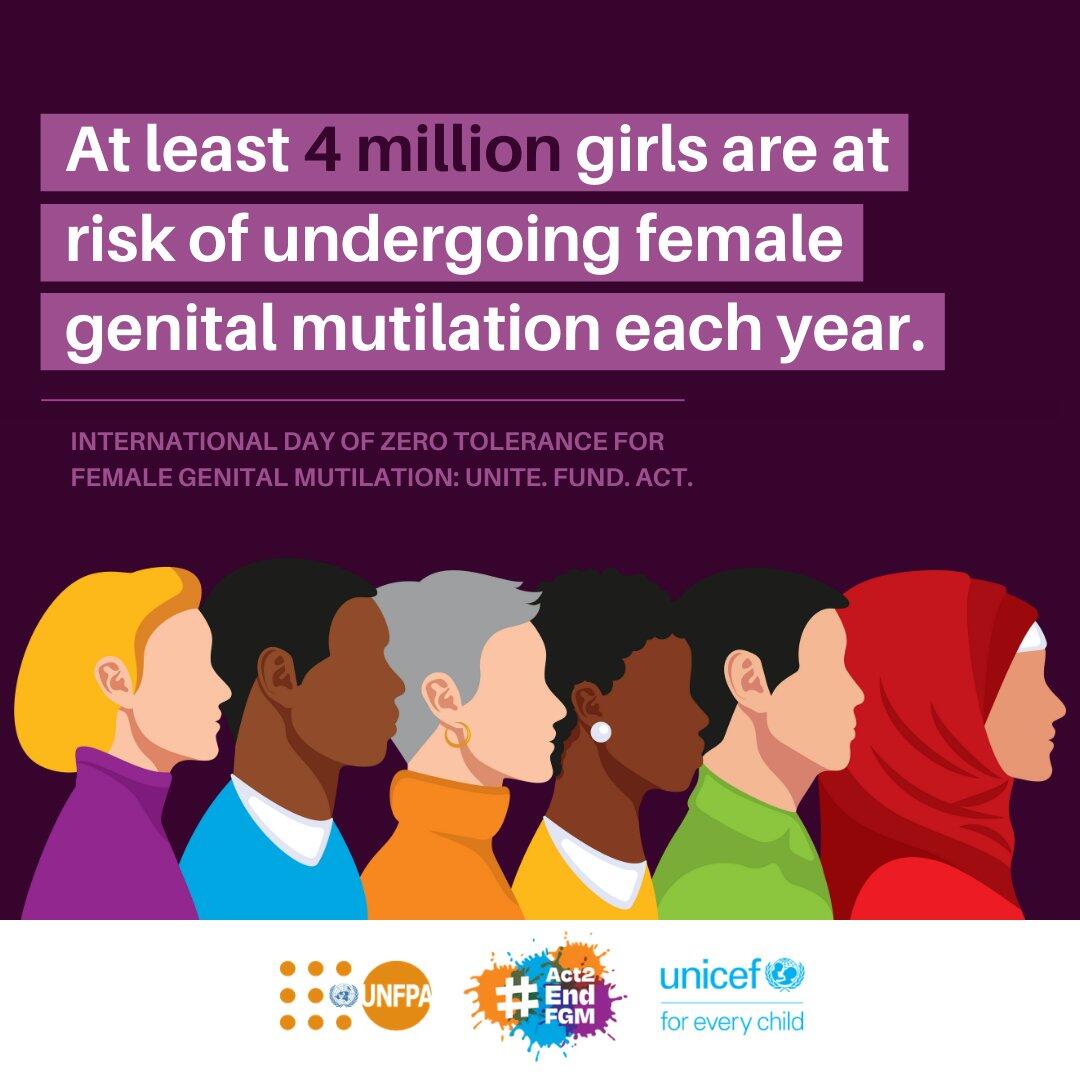By Dr. Luay Shabaneh, UNFPA Arab States Regional Director
A year ago, I had higher expectations and brighter hope that no more girls will die due to Female Genital Mutilation. I then believed no women or girls would undergo the vicious circle of torment due to the inhuman, illegal and harmful practice. I hoped that reaching the zero gender-based violence and harmful practices against women and girls is in hand by 2030.
I prayed that the fate of Iman, Badour, Suheir, and Mayar al-Luti, who were killed by a medical practitioner during female genital mutilation, would be from the history. I thought no more girls would endure what Shaima went through since her tenth year, when she was exposed to this harmful practice. These hopes and expectations have been hit hard by COVID-19. The pandemic and its related restrictive measures, such as lockdowns and curfews, are likely to further worsen the situation.
Every year on February 6, the International Day of Zero Tolerance for Female Genital Mutilation (FGM) reminds us that prior to the eruption of COVID-19, an estimated 200 million women and girls worldwide have been mutilated, and are living with the physical and mental consequences of this grave human rights violation. While this number is already shocking – 200 million cases means that around 5% of the world’s female population are affected.
FGM is widely prevalent in some Arab countries: In Yemen, 19% of women and girls aged 15-49 have been subjected to the practice, while in Egypt and Sudan the rates are as high as 87%, and even 94% in Djibouti and 98% in Somalia.
A UNFPA analysis carried out at the onset of COVID-19 has projected that the global health crisis might result in an estimated 2 million more cases of FGM over the next decade than would otherwise have occurred. This is because the implementation of programmes to end this harmful practice will most likely be delayed due to the pandemic.
While some gender-specific effects of the pandemic have been recognized, such as an increase in domestic violence and an additional burden on women in terms of unpaid care and domestic work, the impact of the pandemic on FGM has received relatively little attention. Yet, anecdotal evidence suggests that COVID-related restrictive measures have led to a rise in the practice. In Somalia, for example, a UNFPA assessment has shown that FGM cases increased likely due to girls dropping out of school during the pandemic and cutters actively approaching families.
In order to counteract this horrifying trend, we must intensify our efforts to eradicate FGM. UNFPA has set an ambitious goal of reaching zero FGM by the year 2030, and we will work tirelessly to achieve it even in the face of unexpected setbacks. To do so, we not only need to invest funds that mirror our commitment, but we also need to engage all stakeholders to collaboratively work on this mission. This includes policymakers from the global to the local level; civil society from grass-roots organizations and women’s rights groups to international NGOs; agents of change from health workers to religious leaders; and the law enforcement and judicial sector.
Men and boys also have a crucial role to play, as we aim to change the social norms that encourage FGM. UNFPA Arab States Regional Office has therefore launched a “Men Engage” Campaign, featuring men speaking out against FGM and debunking some of the most common misconceptions surrounding FGM, such as the false notion that FGM can be safe when carried out in a medical setting. Only if we also engage men and boys we can effectively work to end FGM and ultimately achieve a more gender equal world, overcoming the additional challenges posed by the COVID-19 crisis.
Silence and lack of action are not an option. Girls and women must be protected. Men, youth and boys must be the voice of change and support local and regional initiatives. Their obligation is to reject female genital mutilation. FGM is of nothing of any religion; FGM is a threat to health women and girls’ health and harms survivors, their families, their surroundings and their societies.


